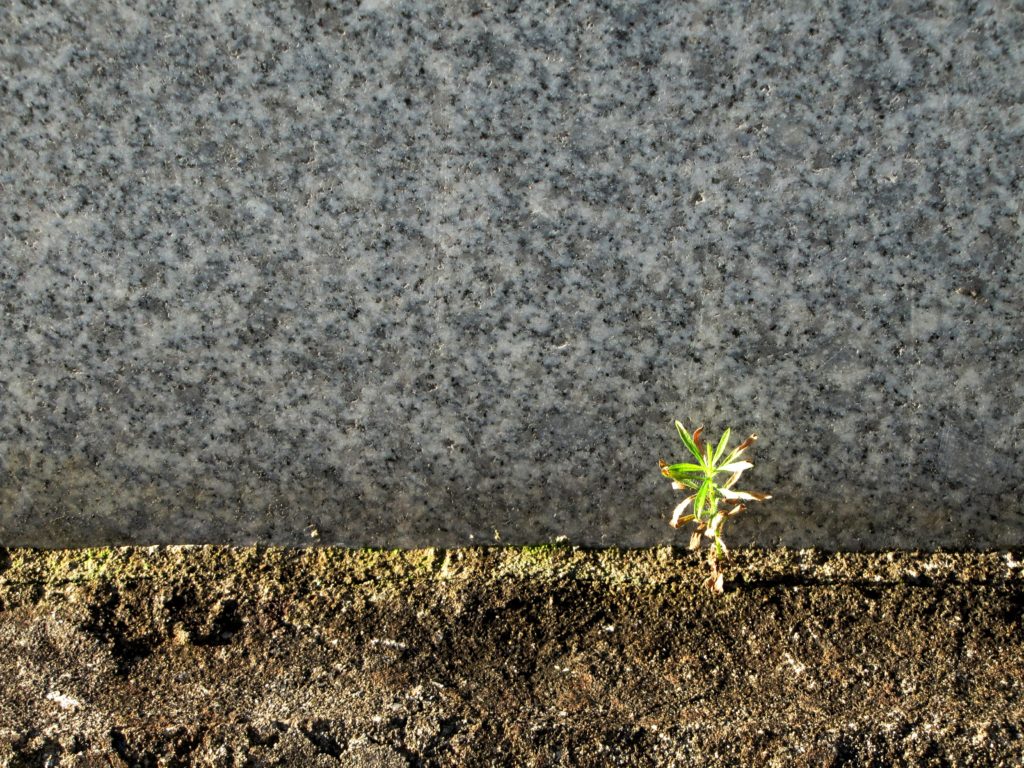Living Against the Age
In this era of popular psychological pseudoscience, which systematically mistakes context for causality, it is common to hear laments about men who beat their wives “because” their fathers beat their mothers, or children with drug-addicted parents who “inevitably” succumb to the habit themselves.
It is certainly true that context, particularly intimate human context, influences character development and the relative visibility of available options, which is why the breakdown of the family and the corruption of education have been such decisive death knells of civilization. However, it would be a great blindness to deny the importance of the subtle counter-influences that are always present in the soul, though more discreetly, and above all the role of independent thought, even from a very early age, in conditioning the overall emotional context in which future choices will be made.
Hence, while it is more fashionable to fall into the simplification of “root causes” as a means of explaining social decay or personal hardship, we may also meet a few inconvenient and invigorating exceptions or counterexamples, in which a person lives in opposition to his most prominent or apparent influences, and does so more or less knowingly and intentionally. Such, at the most obvious level, would be the youth who explicitly chooses to be the man his father was not, or who eschews alcohol after watching its corrosive effects on his family; and such, less commonly but more definitively, would be the one who, repulsed by the easy certitudes and emotional shallowness of the ordinary life of nihilistic utility into which our late modern machinery is guiding him, forcefully chooses the more difficult (because socially unapproved and materially marginalizing) road of spiritual self-development.
People of this sort are surely extraordinary, but they do appear. One who spends a considerable amount of time among young adults, such as in a university setting, encounters cases of such temperament and character more often than today’s ubiquitous pressures of progressive compliance might give one any reason to imagine possible. These individuals — and I use that word in its profoundest sense here — can also be difficult to spot. They appear along a spectrum of degrees of independence, and it is likely that many will have their nobler impulses caged by practical concerns or crushed by social ostracism eventually. Furthermore, the most promising among them are more likely to blend into the crowd at a first or second glance than the more flamboyantly unique types who are usually labelled “individuals,” i.e., those whose aggressive efforts to display their non-conformity merely highlight their craving for approval and acceptance, thus revealing the hollowness of their supposed rebellion, and signalling the likelihood that they will, when push comes to shove, fall on the side of social submissiveness where matters of real practical risk or spiritual principle are concerned. Nevertheless, those hidden, genuine exceptions are there to be found, and the awareness of their existence provides a source of something that almost approaches the status of hope, even for one who tends toward extreme skepticism regarding the notion of hope where human things are concerned.
Understand, however, that the hope I refer to here is not related to the fate of the world in general, which in its current formlessness is beyond all earthly salvation. The thinking man does not waste his reason on alchemy, nor his emotion on corpses. Rather, the only hope rational observation allows us in this age is that the embers of what was once the human heritage may not die out completely; that a few flames here and there may yet be stirred up from amid the greater pile of spent fuel, affording the darkening chill of night their saving hint of light and warmth; that these happy exceptions, if enlivened with just the right balance of vigorous agitation and gentle enticement — alternating scrapes and breezes — may send a few sparks aloft to remind the distant, rising smoke of civilization that all has not yet died out, that souls worthy of their inheritance still exist here, though few and far between.
But was this not always true, in fact? When was there not a premium on souls capable of living against the age, in the fundamental and non-performative sense? Perhaps all that has changed — and this is not a negligible difference — is the starkness of the distinction between such natural individuals and their surrounding societies, as well as the increasingly relentless and amorphous character of the popular mass pressing against these anomalous ones, threatening at every moment to suffocate the life out of them. Thus it is highly probable that the spiritual mortality rate of these exceptions is higher today than was once the case, as their potency is more likely than ever to be aborted or still-born in the midst of societal norms utterly lacking in those minimal structures of reason and restraint that had, in most earlier times known to us, served as a rough but viable public soil in which the seeds of a higher private life might germinate and send up shoots. In short, the odds against them are higher than ever.
There is no romanticism in their condition, no standing proudly on a mountaintop, surveying the scene below. Only unhealthy and more or less continual doses of isolation, disapproval, and rejection, all of which, in this nihilistic and immoderate age, are forced upon them without respite or mercy, a perpetual onslaught which repeatedly punctuates its uncomprehending hatred with the frustrated inquiry, “Why won’t you give this up?” To remember the answer to that question each time it is posed, and to possess the tenacity and self-awareness to say it, especially to himself, is the hardest labor the natural individual faces during his youthful odyssey of self-discovery. The clearest demonstration of what is won through this labor, and also the living model of how to survive it, is Socrates’ famous explanation, to the jury about to vote for his execution, of why he would not give up philosophy in order to save his skin: “The unexamined life is not worth living for a man.” But even as he says it, Socrates notes, somewhat matter-of-factly, that his jurors will never believe it — and therein lies the harshest truth which the soul must understand and learn to accept.



